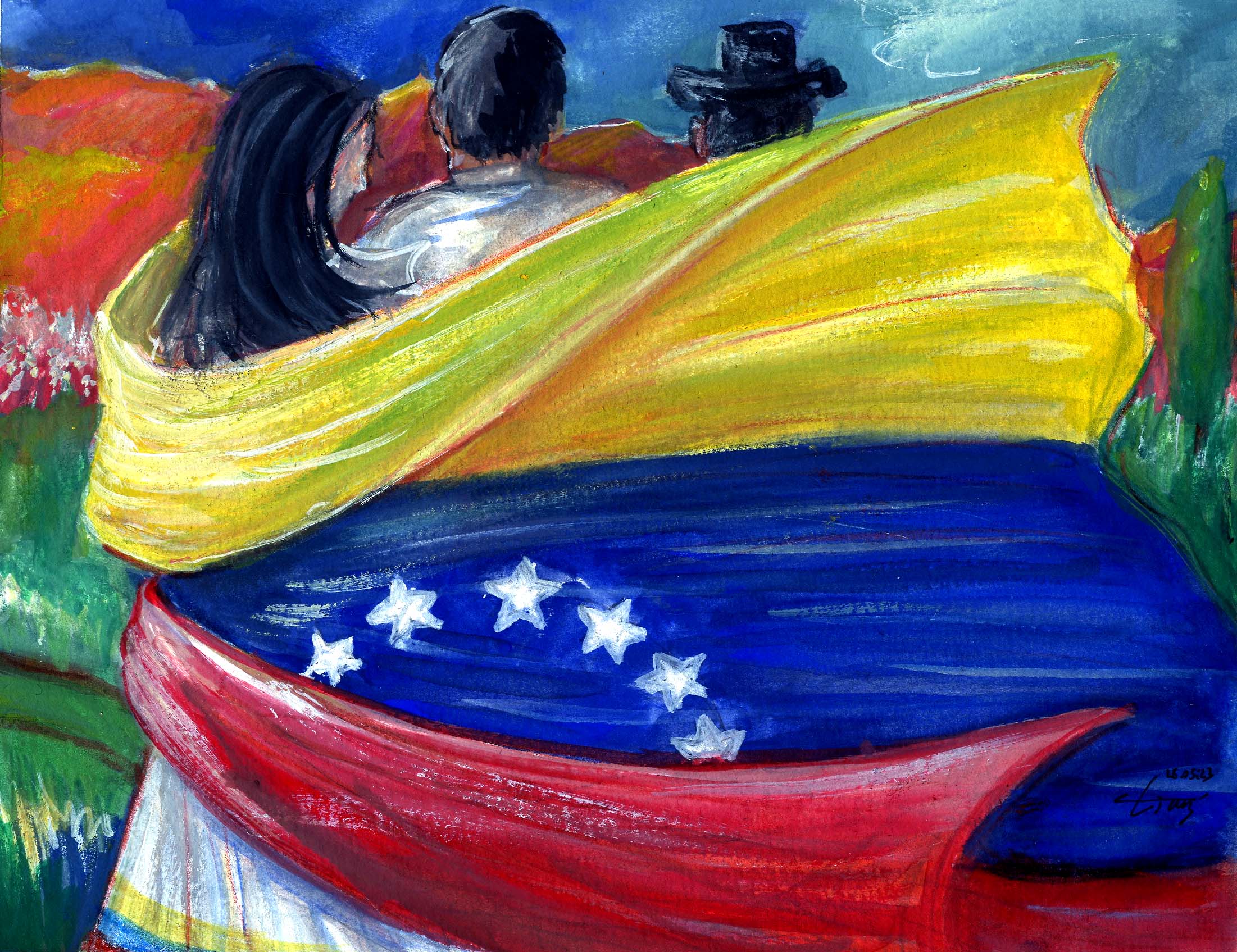Victory! Thanks to you, we did it.
On 11 October 2024 , the UN Human Rights Council heard our call and renewed the mandates of the UN Fact-Finding Mission (FFM) and of the Office of the UN High Commissioner for Human Rights (OHCHR) on Venezuela for another two years.
The Council sent a clear message to those responsible for human rights violations in Venezuela: they will be held accountable for their abuses.
Over the next two years, the international community will continue to monitor and scrutinise the grave human rights situation in the country. Given the deteriorating context and the closing of spaces for human rights defenders in Venezuela, this work is essential to achieve accountability and justice in the medium to long term.
As part of the campaign, together we sent more than 300 emails and tweets to the ten countries that we had identified as key to ensuring that the resolution is adopted. Of these ten countries, we managed to get two to vote in favour of the resolution and the rest to abstain (and not vote against it!).
This successful outcome is also a joint achievement of international and Venezuelan civil society and shows what we can accomplish when we work in coalition.
In 2019, the Human Rights Council established the The Fact-Finding Mission (FFM) on Venezuela to assess alleged human rights violations committed in the country since 2014. The mechanism is the only independent United Nations monitoring body with the mandate to investigate systematic violations and abuses of human rights and ensure accountability for perpetrators in Venezuela. The HRC also decided that the Office of the United Nations High Commissioner for Human Rights (OHCHR) would provide technical assistance and monitor the human rights situation of the country to prevent further violations to occur. Both mandates end in September 2024 after 5 years of work (3 mandates).
ISHR and partners are campaigning for the Human Rights Council to renew the FFM and OHCHR on Venezuela for a further two years at its 57th session (9 September – 9 October 2024). Extending the mandates of these mechanisms is vital to continuing the investigation and documentation of the violations and abuses committed in Venezuela and to putting an end to impunity.
What do we want?
We want the UN Human Rights Council to renew the FFM and OHCHR mandates for another two years at its 57th session.
Now is not the time to change the UN monitoring and reporting system on Venezuela. The country just went through a presidential election in July 2024 and will have legislative and local elections in 2025. Following the presidential elections, Venezuelans face brutal repression, especially those who exercised their right to political participation and protest, political leaders, journalists, human rights defenders and others who are opponents or perceived as such. International scrutiny in this context is essential and this makes the need to renew both mandates more urgent than ever.
The FFM still has work to do, there are still ongoing areas for investigation in specific cases and violations in rural areas, the links between the government and armed criminal groups and the role and responsibility of the military in crimes against humanity among others.
More importantly, the FFM and OHCHR have a proven record of impact. Victims see their experiences reflected in reports and acknowledged. They feel heard. The FFM has also secured evidence and proofs that have informed the decisions taken by the ICC and that will be key to judicial processes, either international or national, in the future.
For all these reasons, we want States to step up and support a resolution for the renewal of the Fact-Finding Mission and the OHCHR on Venezuela at the 57th session of the Human Rights Council. We want States to take meaningful and immediate action to support the Venezuelan people and human rights defenders and civil society organisations as they grapple with the grave, multidimensional crisis that has engulfed their country.We want truth and justice for victims.
What can you do?
We have been supporting local organisations and human rights defenders in their call to let the Fact-Finding Mission and the OHCHR continue their crucial work. Join their voices!
The UN Human Rights Council will debate and very probably vote on a resolution renewing both mandates by the beginning of October. We need as many HRC members as possible to support this resolution. Several Council members (we have identified ten of them) will be key to ensuring that the resolution is passed with broad support. Send an email to these key UN member States and ask them to support the resolution.
Just fill in the form at the top right of this page. When hitting the send button, we will drop an email on your behalf to these key states to remind them why voting YES! for this resolution on Venezuela is so important.
Thank you for joining efforts for truth, justice and accountability for victims of violations in Venezuela!
In order to ensure guarantees for an efficient investigation and access to justice for the victims, the Mission must continue its work.Elvira Pernalete, mother of one of the victims of abuse





